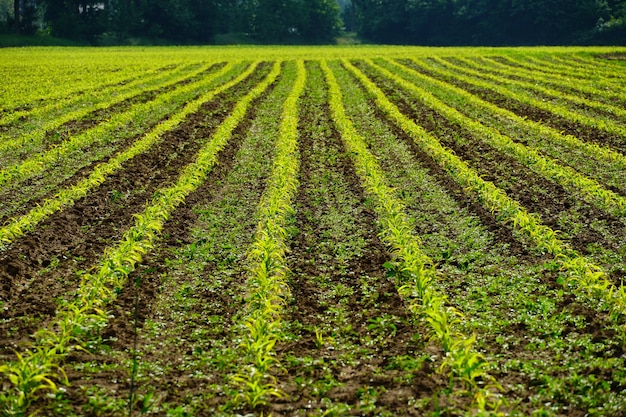Agricultural Educationist Calls for Improved Commitment to Farming
Tunde Joshua Agunbiade, an agricultural educationist, revealed that Nigeria possesses 75% of its land suitable for agriculture, but only 40% of this land is cultivated for agricultural purposes and calls for enhanced commitment from the country and absolute focus on farming.
Tunde, who studied Agricultural Education as an undergraduate and Agricultural Extension for his master’s degrees, recently lamenting his dissatisfaction with Nigeria’s low attitude towards agriculture.
He highlighted that there are expanses of arable land with good potential for greater yields, yet they remain untapped.
“Apart from the fact that there are large areas of land yet to be utilized for cropping, I think Nigeria has reached a milestone when it must focus on crop production,” he said.
He noted that Nigeria ranks as the largest yam and cassava producer and the fourth largest producer of cocoa globally, showcasing the skills and efficiency of crop farmers in the country.
“This is a significant milestone, but a lot still needs to be done. The issue of constant clashes between herdsmen and crop farmers needs to be addressed by stakeholders in the agricultural industry,” he added.
Tunde explained that before the discovery of petroleum resources in Nigeria, agriculture had been the economic hub of the nation.
He said the sector was the major industry that employed the bulk of the population, keeping extreme poverty under control.
“With Nigeria solely relying on agriculture, the nation was self-sufficient and able to meet almost all its financial needs,” he explained. “In fact, it’s noteworthy that it was during this period of dependence on agriculture that all six first-generation universities, like the University of Ibadan, University of Nigeria, Nsukka, University of Lagos, Obafemi Awolowo University, Ahmadu Bello University, and University of Benin, were all established.”
He further noted the numerous and inexhaustible opportunities in the industry, such as providing food, shelter, and clothing for the growing population, reducing poverty, creating jobs, particularly for youths, generating income for stakeholders, and contributing to various national development initiatives.
Tunde lamented the negative attitude towards agriculture among Nigerians, calling it the most significant problem plaguing the sector. “Agriculture is often seen as a primitive engagement, a lowlife activity, and poor man’s work,” he said.
“It’s disheartening that this prevailing issue has not been addressed by major stakeholders, including the government.
“Other challenges include poor investment in rural development,” he continued.
“Many rural communities lag behind in terms of development, struggling with issues such as poor electricity supply, inadequate water provision, lack of health facilities, and a shortage of rural development experts like rural sociologists, rural communication experts, and agricultural extension workers.”
He urged all Nigerians to embrace agriculture and cultivate a positive attitude towards the industry. He also called on the government and private sector to increase investment, adopt modern technology, and encourage youth participation in the sector.
Tunde also shared that his father, a farmer in Ijero Ekiti, grows cocoa, kolanut, African walnut, various yam varieties, pepper, maize, cocoyam, cassava, plantain, and ornamental plants.
However, he mentioned various challenges his father faces, including poor road networks and post-harvest losses.
“One of the major challenges he faces as a farmer is the issue of bad roads,” he explained.
“Most of the time, he takes his harvests to Aramoko Ekiti to exchange them for money, but transporting his harvest is difficult. This also leads to wastage because he’s unable to move the goods to market on time.”
He pleaded with the government to address these challenges, which affect numerous farmers, to contribute significantly to rural development.
Agro Nigeria/ Foluke Ibitomi


Comments are closed.